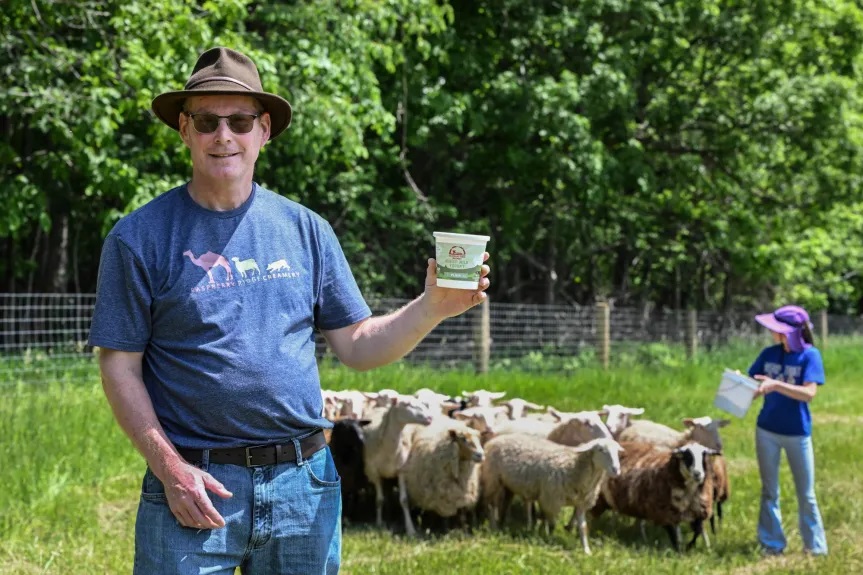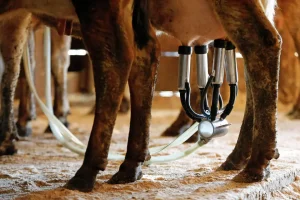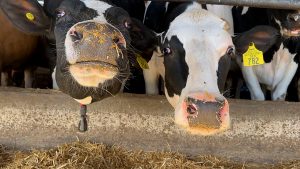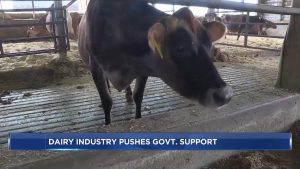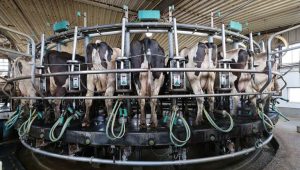
A camel named Alexander successfully intimidates coyotes from approaching the flocks at Raspberry Ridge Creamery, but the Upper Mount Bethel Township sheep farm needed an infusion of cash to fence off expanded grazing areas from the road.
Owner Robert Dunning had secured $40,000 in grants for the fence, until the cancellation of the federal Partnerships for Climate-Smart Commodities Program forced a downgrade to a less substantial $19,000 version financed with funds intended to expand creamery production and increase farm revenue.
Across the Lehigh Valley, farmers like Dunning have found their grant-funded work halted as the Trump administration targets climate-related programs for elimination.
U.S. Department of Agriculture announcements have stated that particular programs no longer align with the administration’s mission. Contracts with third-party vendors who perform environmental reviews have been terminated. Court hearings have debated the difference between congressionally mandated funding and a federal department’s budgetary discretion.
“I feel like our farm and small farms like ours are being treated sort of like pawns in a political fight between the last administration and this administration,” said Anton Shannon, co-owner of the 14-acre Good Work Farm in Upper Nazareth Township.
Raspberry Ridge and Good Work Farm are two of 19 farms in Lehigh and Northampton Counties that had signed up to work with Pasa Sustainable Agriculture after the nonprofit gained nearly $60 million in federal grants to support climate-smart projects across 15 states.
Robert Dunning, owner of Raspberry Ridge Creamery, holds yogurt made at his sheep dairy farm Friday, May 30, 2025, in Upper Mount Bethel Township. Federal funding cuts have hurt local farmers like Raspberry Ridge, which lost funding for protective fencing as well as support for sales of its yogurt to a local food bank. (Monica Cabrera/The Morning Call)
On-the-ground work started last fall, and Pasa had $2 million in shovel-ready projects set to go this spring.
Dunning and Shannon saw the first signs of trouble in February, as the new administration’s review of federal contracts stalled work on environmental reviews used to assess a project’s impact on the land.
“Things just sort of fell apart,” Dunning said, “And, from my perspective, things just stopped happening.”
The entire $3 billion Climate-Smart Commodities program was shut down in April.
As Pasa continues to fight legal battles to restore funding, farmers — who already operate on razor-thin margins — face tough choices about whether to downscale or postpone work and how much to draw down savings.
Business models under pressure
Like Dunning, the most expensive of the planned investments Shannon needed was a fence. Specifically, a $27,000 fence needed to keep deer out of vegetable plots.
Shannon had spent the winter cutting down invasive plants to ready the perimeter of his plots for the new fence. Beyond the sunk cost of weeks of labor, Shannon knew the farm couldn’t go another season without a better way to stave off deer.
To fund the fence without federal grant money, Shannon decided to pull from savings and retirement funds. The decision will likely mean 10 years of working with less capital as the farm pays itself back, he added.
“It’s discouraging because farming is hard enough on its own — navigating weather and markets,” Shannon said. “It’s unfortunate that there’s now another layer of uncertainty that farmers have to deal with when dealing with agricultural funding.”
The unanticipated expense of the cancelled grant will affect the farm’s ability to hire people for the season and could mean rising loan expenses for future investments, Shannon said, adding that the farm’s short-, medium- and long-term plans all had to be reworked.
“It’s certainly meant that we will not be profitable this year,” Shannon said.
Dunning said the unanticipated loss of grant funding also threw his business plans into disarray.
The 77-acre Raspberry Ridge has expanded beyond its original sheep dog training business, launching a creamery in 2018 that has enabled yogurt to become the farm’s main moneymaker.
Raspberry Ridge had hoped to ramp up production of its sheep milk yogurt and artisanal cheeses to move beyond its current farmer’s market model and toward wholesale, but money that was meant for creamery equipment updates has now been sunk into the fence.
The result will be limited production and limited profit, Dunning said.
The Climate-Smart Commodities grants aren’t the only recently cancelled federal program that will affect Raspberry Ridge’s bottom line.
The farm also sold yogurt to the nearby Mission of Love food bank under the Local Food Purchase Agreement program that is now scheduled to end in July.
The program pays farmers to supply local food pantries, and its end means the loss of a big customer for Raspberry Ridge.
“We’re not going to lose our shirt over it, but we have to find new markets now,” Dunning said. “It’s frustrating.”
Grants designed to aid small farms are rare, said Lizzy Beller, owner of the half-acre Bubbly Hills Farm in Upper Milford Township, adding that the opportunities offered by programs like Climate-Smart Commodities and the Local Food Purchase Agreement are hard to replace.
“It’s such a huge loss for the whole ag community,” Beller said.
Beller started selling cut flowers three years ago. Her climate-smart grant would have provided $1,000 in reimbursement for seeds she uses to plant cover crops in the off season.
Beller, Dunning and Shannon all are committed to climate-smart practices that ensure the long-term health of their land.
At Bubbly Hills Farm, those practices include crop rotation and mulching walkways to prevent soil erosion.
Raspberry Ridge rotates its grazing sheep twice daily and invests in pasture improvements.
Tree plantings at the Good Work Farm combat erosion by slowing increased winds and absorbing water after heavy rains.
“What farmers know and see on the ground is that climate change is affecting the long-term viability of our farms,” Shannon said, “in lots of different ways, in lots of unpredictable ways.”
Cancelled climate-smart grants have also meant the termination of technical support staff who help connect farmers with funding and guide them through project implementation.
Pasa cut its staff from 82 to 22 this spring. Scaled-back outreach, education and research programs will continue, executive director Hannah Smith-Brubaker said, but the loss of federal resources signals an unwillingness of the government to acknowledge the reality farmers are facing.
“If we have a USDA that won’t acknowledge climate, it’s essentially saying to farmers, ‘You don’t know what you’re talking about,’” Smith-Brubaker said.
You can now read the most important #news on #eDairyNews #Whatsapp channels!!!
🇺🇸 eDairy News INGLÊS: https://whatsapp.com/channel/0029VaKsjzGDTkJyIN6hcP1K
